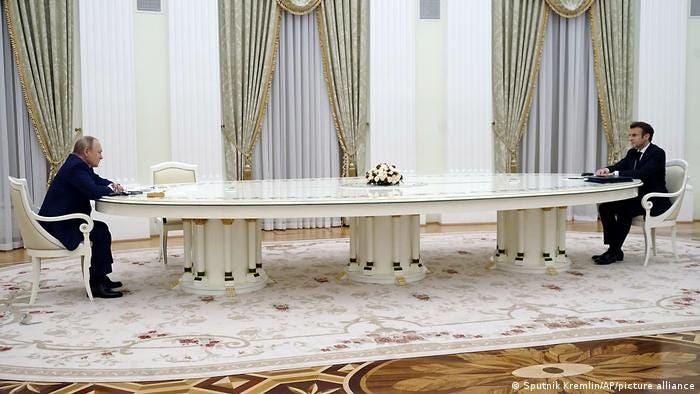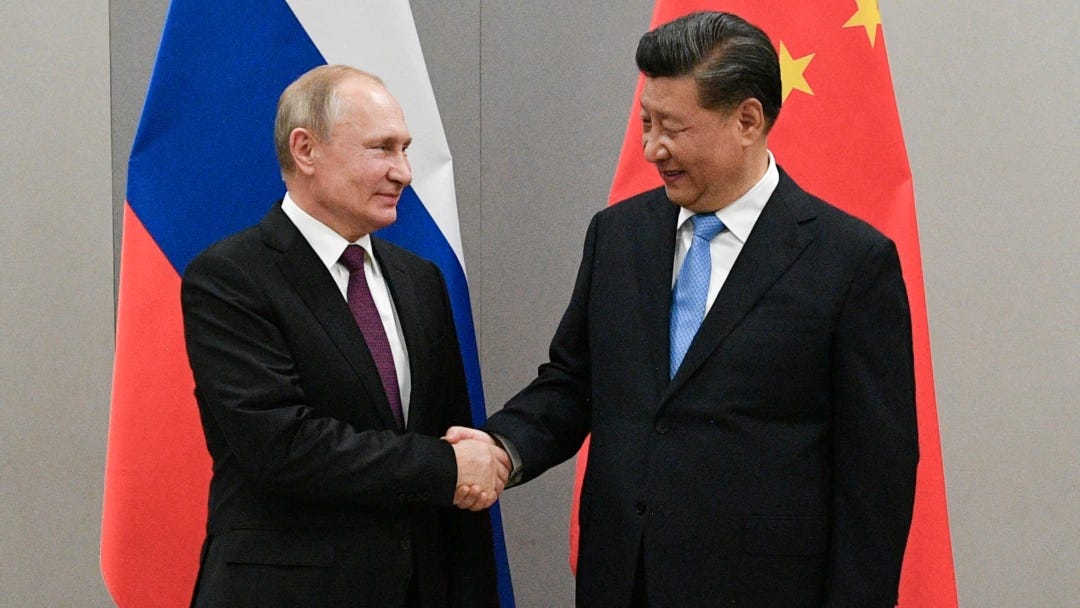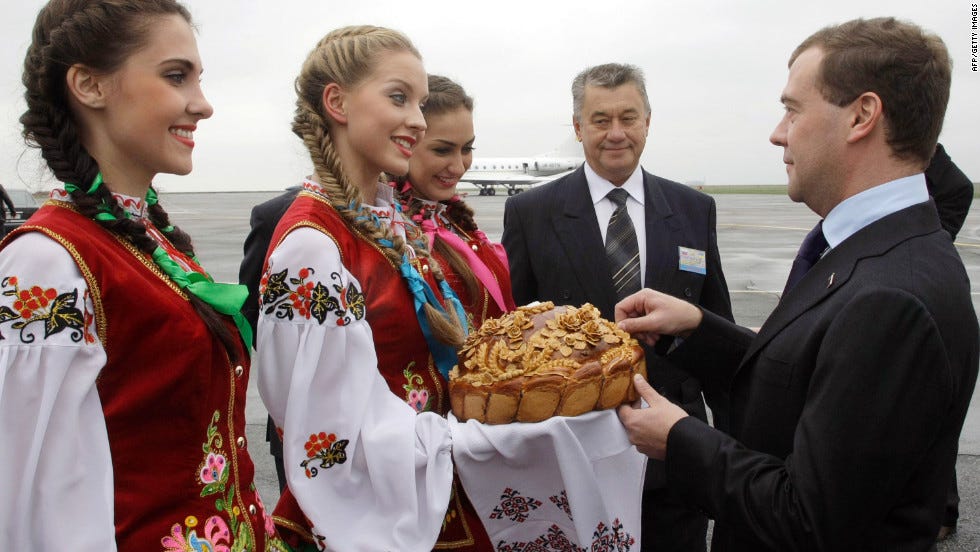European shuttle diplomacy to stave off a possible conflict
The French President undertook an ambitious diplomatic exercise as he travelled to Moscow and Kyiv.
After more than five hours of talks between Russian President Putin and his French counterpart Emmanuel Macron, no major breakthrough was achieved to stem the rising tensions between Russia and Ukraine. Although, Macron struck a positive tone, telling the press that Putin had assured him that there would be “no degradation or escalation” of the crisis by Russia. But, the very next day the Kremlin refuted that Putin had given any specific assurances to Macron.
With just two months to the French elections, Macron has put himself at the forefront of Europe’s diplomatic efforts to mediate between the two sides. As the US has adopted a harsh stance on the crisis and Germany being shy, France took the stage, leading the efforts to erect a new European security architecture. The odds were not in favor of a possible resolution before the visit, given the split between Russia and Ukraine on the status of the Donbas, Kyiv’s desire to join NATO and NATO’s adventurism on the Eastern flank. As Europe stands more or less divided on the crisis, Macron stepped into the leadership role for Europe to hash out on a possible breakthrough.
According to reports, Putin spoke about the growing frustration at the Western indifference to resolve Russia's security concerns. In the joint statement after the talks, the Russian President stated "You know, we have tried to talk to them about avoiding certain actions for 30 years now. What we get in response is total disregard for our concerns,". Putin apparently spoke repeatedly during the talks to the issue of the 1997 NATO agreement that opened the way for three ex-Soviet bloc states - Poland, Hungary and the Czech Republic - to join the alliance. He also highlighted the 2014 Maidan revolution and the 2019 election of Volodymyr Zelenskiy as Ukraine's President.
Although, Putin hinted that some of Mr Macron's proposals "could form the basis of further joint steps" - though they were "probably still too early to talk about". Reports suggested that the two leaders had agreed that Russia would pull troops out of Belarus at the end of exercises taking place near Ukraine's northern borders. However, the Kremlin denied that any such deal has taken place.
French President’s next stop was Kyiv, where he met Ukraine President Zelensky. Macron seemed determined at the presser and said there was now the chance to "make these negotiations move forward" between Russia and Ukraine, and that he could see "concrete solutions" to reducing tensions. Zelensky called President Putin to take crucial steps to reduce tensions at the border and said that "I do not really trust words, I believe that every politician can be transparent by taking concrete steps".
British Foreign Secretary Liz Truss also met with Russian Foreign Minister Lavrov in Moscow but nothing substantial came out after the talks. Later Truss stated that any military escalation by Moscow would invite heavy sanctions from the UK.
As world leaders undertake the diplomatic tour of Moscow and Kyiv, President Putin has kept everyone guessing. German Chancellor Olaf Scholz will be visiting Moscow next week to meet President Putin.
Xi - Putin’s no-limit partnership: The friendship gains traction
President Xi and Putin held talks on the sidelines of the Winter Olympics.
Chinese President Xi Jinping and Russian President Vladimir Putin held their first in-person meeting since 2019. Putin arrived in Beijing to attend the opening ceremony of the Beijing 2022 Winter Olympics.
“In a warm and friendly atmosphere, the two Presidents had an in-depth and thorough exchange of views on China-Russia relations and a series of major issues that concern international strategic security and stability,” the statement from China’s Foreign Ministry stated.
Chinese President Xi praised the relationship between the two countries stating -““The two sides have firmly supported each other in defending their core interests, strengthened political and strategic trust, and achieved a new high in two-way trade. China and Russia have stayed committed to deepening strategic coordination of mutual support. The two countries have never and will never waver in this choice.”
President Putin also echoed Xi’s words noting that “Russia sees in China the most important strategic partner and a like-minded friend, and hails the Russia-China relationship as an example for international relations in the 21st century.”
The joint statement opposed further NATO expansion, discredited the new Australia-UK-US alliance (AUKUS) and warned Washington against deploying intermediate-range missiles in either Europe or Asia. Both the leaders also said their governments "remain highly vigilant about the negative impact of the United States' Indo-Pacific strategy on peace and stability in the region."
The statement also mentioned that "The Chinese side is sympathetic to and supports the proposals put forward by the Russian Federation to create long-term legally binding security guarantees in Europe."
According to reports, ahead of the Putin-Xi meeting, Yuri Ushakov, Putin’s foreign affairs adviser, told reporters that China backs Russia in the current standoff over Ukraine. “Beijing supports Russia’s demands for security guarantees and shares a view that security of one state can’t be ensured by breaching other county’s security,” Ushakov noted.
The statement from the Kremlin noted that both the leaders discussed “the circumstances surrounding the security guarantees proposed by the Russian Federation.” But there was no specific mention of Ukraine in the readout.
With the level of economic cooperation between the two sides not seeing an uptick, Xi stressed that the “two sides need to implement the Road Map of High-Quality Development of Goods and Services Trade.” The lack of considerable progress linking the Belt and Road Initiative with the Moscow-led Eurasian Economic Union has also concerned Beijing for some time now. As the strategic and geopolitical have been gaining more attraction, the economies of both the sides have not been interacting much with each other.
President Xi called for both China and Russia “to deepen communication on fiscal and financial policies and build up joint resilience against financial risks.”
Given the growing convergence of both the sides on strategic and geopolitical issues, Washington is bound to get wary about being overstreched in its approach.
In Other News
Russia and Ukraine failed to reach a breakthrough at marathon talks in Berlin. Talks were held within the Normandy Format. The four nations Germany, Russia, Ukraine and France have been working towards reaching a peace deal for eastern Ukraine since 2014.
The Presidents of Russia and the United States, Vladimir Putin and Joe Biden, plan to have a phone conversation on Saturday.
Russia and Belarus have started ten days of joint military exercise amid ongoing fears of a Russian invasion of Ukraine. The exercises - known as Allied Resolve 2022 - are taking place close to the Belarusian border with Ukraine. Ukraine has accused Russia of blocking its access to the sea. Ukrainian Foreign Minister Dmytro Kuleba said the Sea of Azov was completely blocked and the Black Sea almost fully cut off by Russian forces.
The newly appointed Russian Ambassador to India Denis Alipov said that threats of US sanctions against India will not affect the military-technical cooperation between the two countries.
Kazakhstan President Tokayev met with President Putin in Moscow and thanked him for helping end violent unrest in the Central Asian nation last month. Both the leaders expressed hope the two countries would continue their cooperation.
Russian has lifted the phytosanitary ban on the imports of citrus fruits from China. The ban was introduced in January 2020.
Russia and China signed a deal to supply gas from Sakhalin, via a new pipeline, to northeastern China. The annual volume is 10 billion cubic meters. This will be Russia's second gas pipeline to China. The much larger deal, which would bring gas from Western Siberia to China via Mongolia, has not materialized during Putin's visit to Beijing.
Around Russia in 80 Words
The World Anti-Doping Agency (WADA) intends to file an appeal with the Court of Arbitration for Sport (CAS) against a decision of the Disciplinary Committee of the Russian Anti-Doping Agency (RUSADA) to lift a temporary suspension of Russian figure skater Kamila Valieva. Russian President Vladimir Putin signed a decree on the establishment of the Russian Security Council Inter-agency commission on migration policy. Moscow is concerned about the acts of vandalism against Soviet memorials in Latvia, Russian Ambassador to Riga Mikhail Vanin said.
Keep Tabs On
Oil prices ended 3% higher on Friday at fresh seven-year highs as escalating fears of an invasion of Ukraine by Russia that added to concerns over tight global crude supplies.
The potential for sanctions on Russia’s oil exports due to escalated tensions with Ukraine looks remote, the International Energy Agency (IEA) said in its ‘Oil Market Report’.
Russian President Vladimir Putin invited President of Kazakhstan, Kassym-Jomart Tokayev to become one of the main guests at the coming the St. Petersburg International Economic Forum (SPIEF) in June.
The Real Talk
The Russian short film “Boxballet,” directed by Anton Dyakov, was nominated for an Oscar in the Best Animated Short category.
The Reader’s Checklist
Pod this Week
From the Vault
Ukranian cuisine is known for its simplicity. Bread is the main part of the national diet and the country has been known as the ‘breadbasket of Europe’. Former Russian President Medvedev receives a traditional greeting arriving in Ukraine in 2010.






